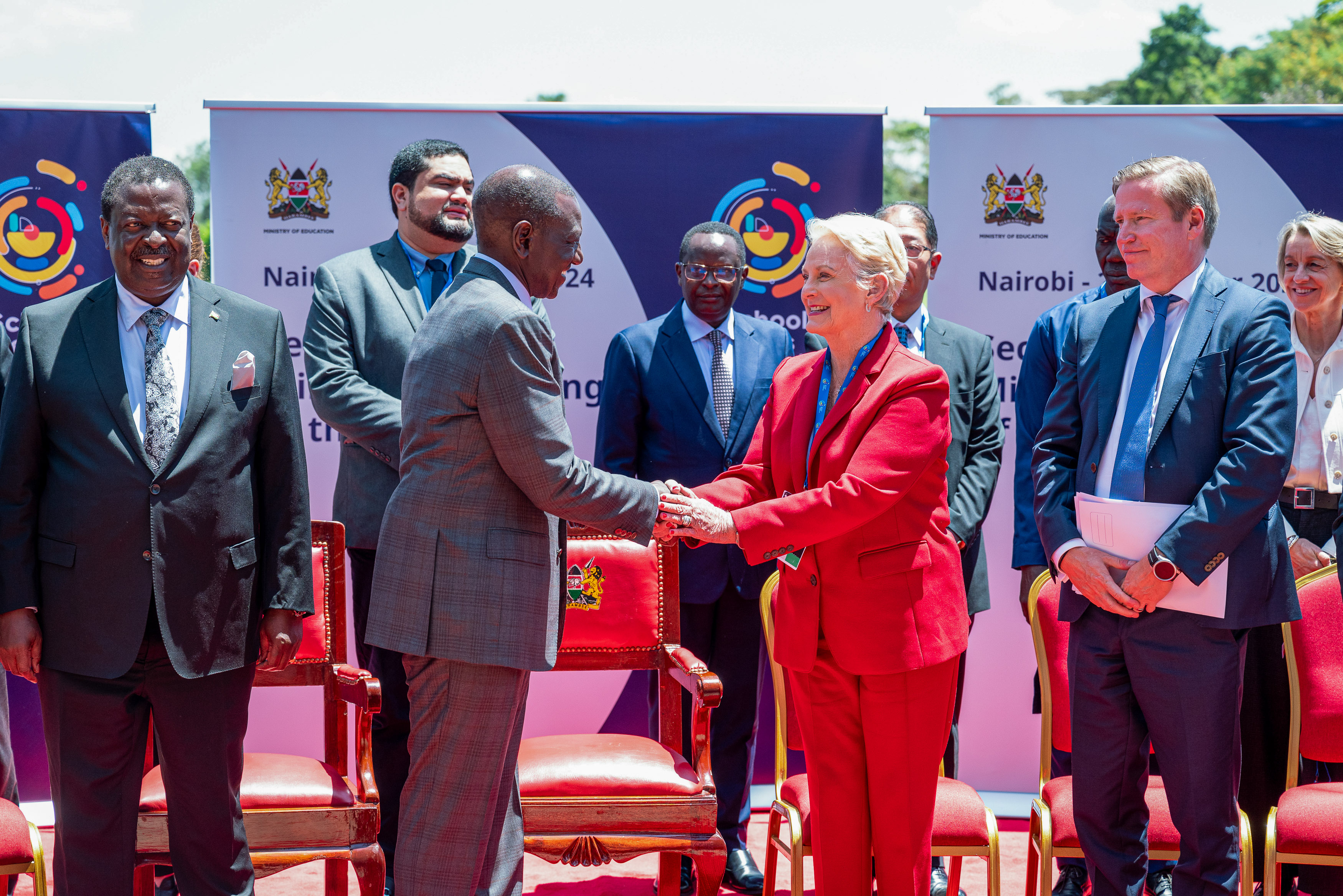Global leaders unite to ensure school meals for every child by 2030
MICHAEL OMONDI- KNA
Ministers and high level government representatives from Africa, Asia, Europe, and Latin America have unveiled priorities to accelerate global collective efforts to ensure that all children have access to school meals by 2030.
The announcement, focused on pressing financial needs, was made at the second Ministerial Meeting of the School Meals Coalition Task Force, hosted by the Government of Kenya.
The priorities aim to combat childhood hun ger and poverty while ad dressing critical education and environmental issues, strengthening local food systems and economies, and creating jobs.
The Coalition will prioritize making school meals a global political and fiscal priority, which will include expanding access to sustainable finance and improving school meal programs through partnerships and technical assistance, especially for low-income countries.
Additionally, a critical priority for the Coalition is to speed up action at the regional, national, and local levels, including municipalities.
In his key note address at the ministerial meeting, President William Ruto emphasized steadfast commitments to scaling up school meals globally under the School Meals Coalition.
He called for a multisectoral approach and greater investment to build sustainable, planet-friendly school meal programs. Ruto stressed the need for investment in developing climate-resilient agriculture, sustainable food systems, and improving school environments and conditions for learning to pave the way for a future where every child is well-equipped to achieve their best.
“We have tripled the budget al location for school meals, set a clear goal to reach 10 million children by 2030, and launched the National School Meals Coalition, alongside an operational plan to scale up school meals,” the President affirmed.
In her remarks, World Food Programme (WFP) Executive Director Cindy McCain said: “Today we have taken significant strides toward our shared goal of ensuring healthy school meals for every child, everywhere, by 2030.”
McCain acknowledged that much work remains, especially to ensure that all governments can finance this vital in vestment, but insisted that the WFP is commit ted to working with its partners to drive progress.
“WFP also looks forward to deepening our collab oration with the Government of Kenya, serving as the secretariat for the Global School Meals Coalition and for Kenya’s new National School Meals Coalition,” she stated.
During the meeting, global leaders discussed potential financing scenarios to increase school meal coverage. According to the Coalition’s Sustainable Financing Initiative cost analysis, approximately $3.6 billion is needed to reach an additional estimated 236 million children in these countries.
Of this amount, an estimated $1.2 billion will be needed in new and additional aid to sup port countries still transitioning to full funding of school meal programs.
Addressing the task force, Roy Steiner, Senior Vice President for the Food Initiative at the Rockefeller Foundation, stressed that school meals must be viewed as an investment rather than a cost.
The meals, according to Steiner, represent one of the most critical investments a country can make in its future, with an estimated 9x return in social and economic benefits.
“School meals are also a powerful demand driver as they feed 20 percent of the population one meal a day,” he added, noting that school meals can be an entry point for food system transformation, as has been witnessed in Brazil, driving demand for locally grown and potentially climate-resilient agriculture.

